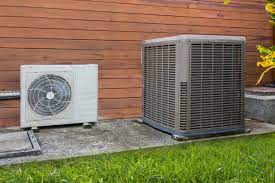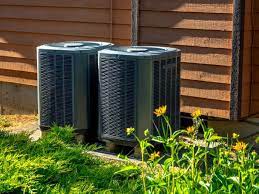Maximize indoor air quality with HVAC replacement. Upgrade your system to ensure clean, healthy air indoors. HVAC Replacement is key. In the quest for a healthier living environment, one crucial aspect often overlooked is indoor air quality (IAQ). Many people spend the majority of their time indoors, whether at home or in the workplace, and the quality of the air they breathe can significantly impact their health and well-being. One of the key factors influencing IAQ is the performance of Heating, Ventilation, and Air Conditioning (HVAC) systems. Over time, these systems can deteriorate, leading to compromised air quality and potential health risks. In this blog post, we’ll explore the importance of HVAC replacement in enhancing indoor air quality.
Contents
Understanding Indoor Air Quality
Before delving into the significance of HVAC replacement, it’s essential to understand what indoor air quality entails. IAQ refers to the quality of air within and around buildings as it relates to the health and comfort of occupants. Poor IAQ can lead to various health issues, including allergies, respiratory problems, and exacerbation of existing conditions like asthma. Common indoor air pollutants include particulate matter, volatile organic compounds (VOCs), mold, pollen, and pet dander.

Role of HVAC Systems
HVAC systems play a vital role in maintaining indoor air quality by regulating temperature, humidity, and ventilation. These systems circulate air throughout the building, filtering out pollutants and ensuring a comfortable environment. However, as HVAC systems age, their efficiency declines, leading to reduced air quality and increased energy consumption.
Signs of HVAC System Deterioration
Several indicators suggest that an HVAC system may need HVAC Replacement
Decreased Performance
If you notice uneven heating or cooling, poor airflow, or inconsistent temperature control, it could indicate that your HVAC system is struggling to perform efficiently.
Increased Energy Bills
As HVAC systems become less efficient, they consume more energy to maintain desired temperatures. If you see a significant spike in your energy bills without a corresponding increase in usage, it might be time to replace your system.
Frequent Repairs
Aging HVAC systems often require more frequent repairs as components wear out. If you find yourself calling for repairs more frequently, it may be more cost-effective to invest in a new system.
Strange Noises or Odors
Unusual sounds or odors coming from your HVAC system could indicate underlying issues that warrant attention. These could include malfunctioning components or the presence of mold or mildew within the system.
Benefits of HVAC Replacement for IAQ
Replacing an old or inefficient HVAC system offers several benefits for indoor air quality
Improved Air Filtration
The Importance of HVAC Replacement becomes even more critical when considering the integration of humidity sensors, which play a pivotal role in regulating moisture levels for optimal air quality and comfort. Newer HVAC systems feature advanced filtration technologies designed to capture a wide range of pollutants, including dust, pollen, and bacteria. Upgrading to a system with high-efficiency filters can significantly improve IAQ.
Enhanced Ventilation
Modern HVAC systems are equipped with improved ventilation systems that ensure proper air exchange, reducing the buildup of indoor air pollutants. Proper ventilation is essential for diluting contaminants and maintaining a healthy indoor environment.
Energy Efficiency
New HVAC systems are more energy-efficient than older models, leading to lower energy consumption and reduced environmental impact. By upgrading to an energy-efficient system, you not only save money on utility bills but also contribute to a healthier planet.
Temperature and Humidity Control
Precise temperature and humidity control are essential for maintaining a comfortable and healthy indoor environment. New HVAC systems offer enhanced control capabilities, allowing for optimal comfort and IAQ management.
Peace of Mind
Investing in a new HVAC system provides peace of mind knowing that your indoor air quality is being properly managed. You can rest assured that your family or employees are breathing clean, healthy air free from harmful pollutants.
Conclusion
In conclusion, HVAC replacement is crucial for enhancing indoor air quality and ensuring a healthy living or working environment. By investing in a new, energy-efficient system, you can enjoy improved air filtration, enhanced ventilation, and better temperature and humidity control. Don’t overlook the importance of IAQ – prioritize HVAC maintenance and replacement to safeguard the health and well-being of occupants.
c




[…] effective Indoor Pollution Prevention Tips to enhance your Indoor Air Quality and safeguard your well-being. With these simple steps keep your home healthy and breathe easier […]